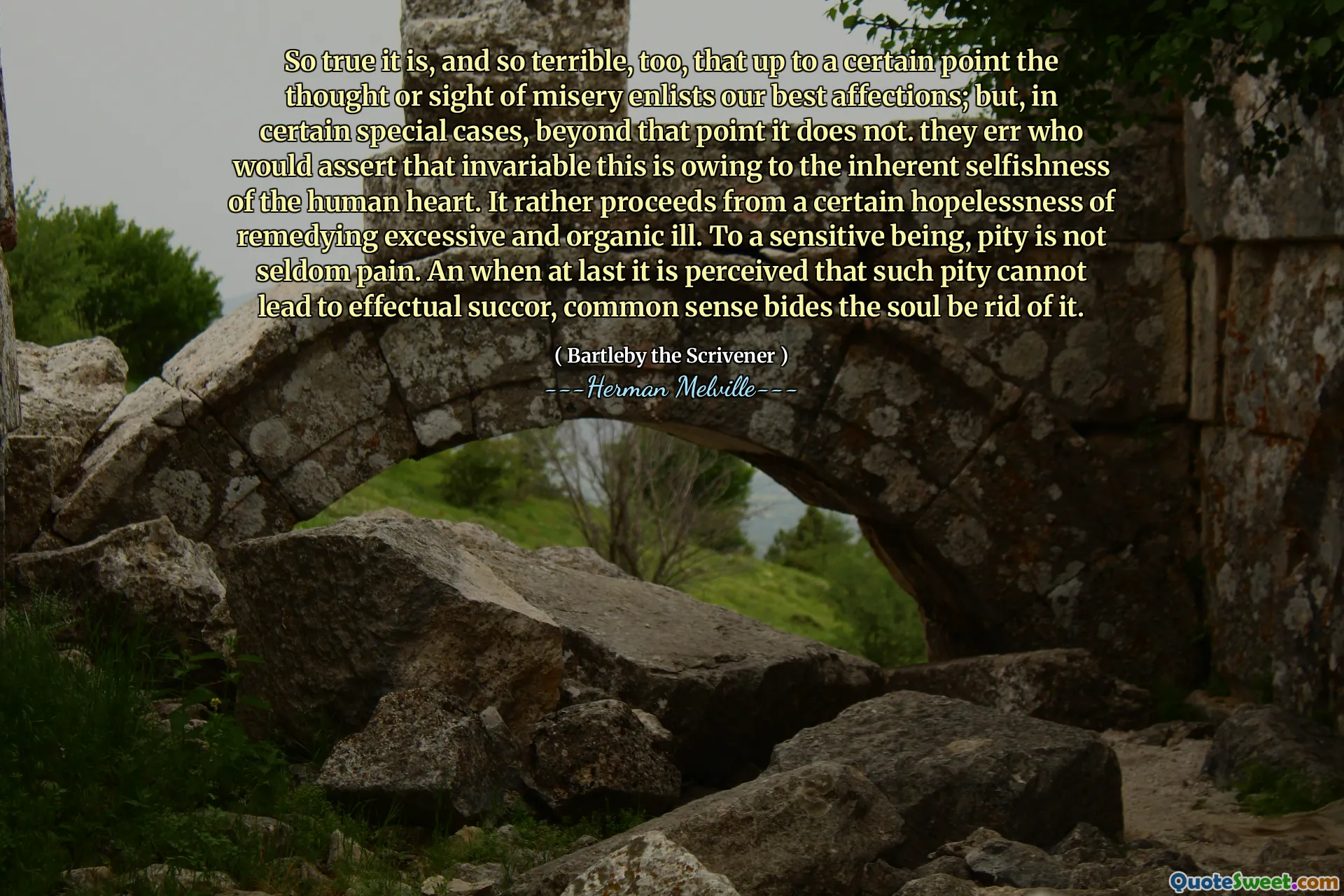
So true it is, and so terrible, too, that up to a certain point the thought or sight of misery enlists our best affections; but, in certain special cases, beyond that point it does not. they err who would assert that invariable this is owing to the inherent selfishness of the human heart. It rather proceeds from a certain hopelessness of remedying excessive and organic ill. To a sensitive being, pity is not seldom pain. An when at last it is perceived that such pity cannot lead to effectual succor, common sense bides the soul be rid of it.
The quote reflects on the complex nature of human compassion and the emotional responses we have towards suffering. It suggests that while we often feel a strong sense of empathy for those in distress, this feeling can become overwhelming and painful when the suffering seems insurmountable. At a certain point, our compassion may even transform into a burden, leading us to detach ourselves from the source of sorrow to protect our own emotional well-being.
Moreover, the quote challenges the notion that human selfishness accounts for this detachment. Instead, it posits that the difficulty in alleviating profound suffering contributes to our emotional withdrawal. The realization that our pity cannot effect genuine change can lead to a rational response where we seek to distance ourselves from the pain. This underscores the tension between our innate desire to help and the limitations we face when confronted with profound misery.


